May Day protests turn violent across Europe
People squeezed by inflation and demanding economic justice took to the streets across Europe to mark May Day in an outpouring of worker discontent not seen since before the worldwide COVID-19 lockdowns.
The Significance of May Day
Also referred to as International Workers Day, people across the world commemorate the contributions of workers and the labour movement on this day.
Although observed as an ancient Northern Hemisphere Spring Festival initially, May 1st became associated with the labour movement in the late 19th century after trade unions, and socialist groups, decided to designate it as a day in support of the working class people.
The decision was taken in memory of Chicago's Haymarket affair, which took place on May 4 1886, when a violent clash broke out between the police and labour protesters.
The incident happened after a bomb went off at Haymarket Square in Chicago where the police had arrived to break up a peaceful rally.
Ultimately, seven police officers were killed and 60 others were injured before the violence ended. It's estimated that eight civilians died and 40 were wounded.
Many of the protesters, who were demonstrating against workers rights violations, long work hours, poor working conditions, low wages and child labor, were arrested and sentenced to life imprisonment and even given death sentences.
Those who died were hailed as Haymarket Martyrs. The Haymarket affair had a lasting effect on the workers movement and helped push forward the demands for better working conditions across the world.
This year's May Day events unleashed pent up frustration after three years of COVID-19 restrictions.
For months Europe has seen a series of strikes as workers demand higher wages in the face of record high inflation rates. In the 19 nation euro currency zone, the annual inflation rate was at an all time high of 10.6% In October, it retreated slightly to 10.1% in November, but that was still the second highest monthly rate since the inception of the euro in 1999.
Hundreds of thousands of people marched in cities around France to vent their anger against President Emmanuel Macron and his Pension Reform. The protests took a violent turn as the day progressed with protesters and security forces clashing.
The French Interior Minister, Gerald Darmanin, told reporters that at least 108 police officers were wounded with 291 Detained across the country.
Some protesters threw projectiles at the police and broke the windows of businesses, including banks and estate agents, in Paris. The security forces responded with tear gas and water cannons.
Trade unions had called for more than 300 rallies and have vowed to continue fighting even after the changes were signed into law.
Protests had started largely peacefully, although police in Paris arrested 22 people, while in Lyon police used tear gas to disperse crowds after bank windows were smashed.
Sophie Binet, leader of the CGT union, said President Macron's pension reform had left her isolated.
You just have to look at the procession behind; you can see that today is a historic May Day.
There hasn't been such an important meeting in France since 1936. So we can't talk about running out of steam. We can't talk about decay.
We can see that this day of mobilization is a stinging denial of all the bets made by the government and of the choice that the government was thinking of making to force us to turn the page.
Sophie Binet, General Secretary, CGT
Protesters mobilized against President Emmanuel Macron's recent move to increase the retirement age from 62 to 64.
Organizers see pension reform as a threat to hard fought for workers' rights while Macron argues it's economically necessary as the population ages.
VIDEO | Golestan: Iran's dreamlike garden
VIDEO | Fate of Gaza ceasefire
VIDEO | South Korea follows US demand, boosts military expenditure
VIDEO | Iran hosts 7th BRICS Meeting on Mega-Science Cooperation
Iran after a 'strong region free from foreign interference': FM
Tehran Stock Exchange index hits historic high
3 civilians injured by Israeli fire during incursion into Syria’s Quneitra
Iran’s wheat imports at $424 mln in Apr-Oct: IRICA


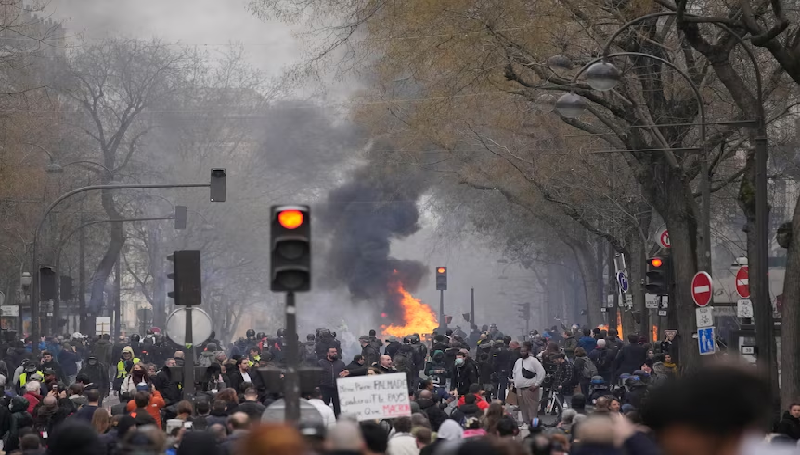
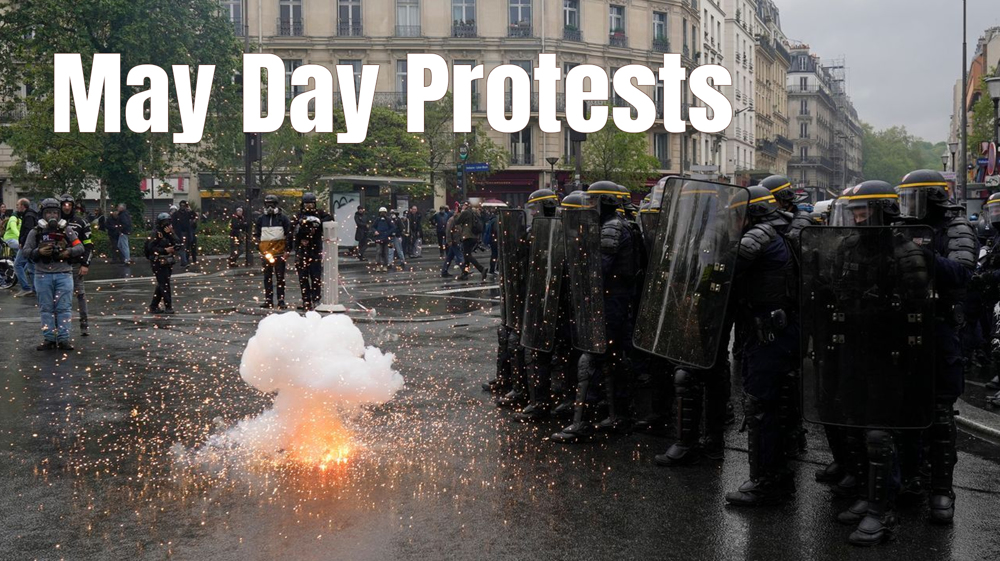

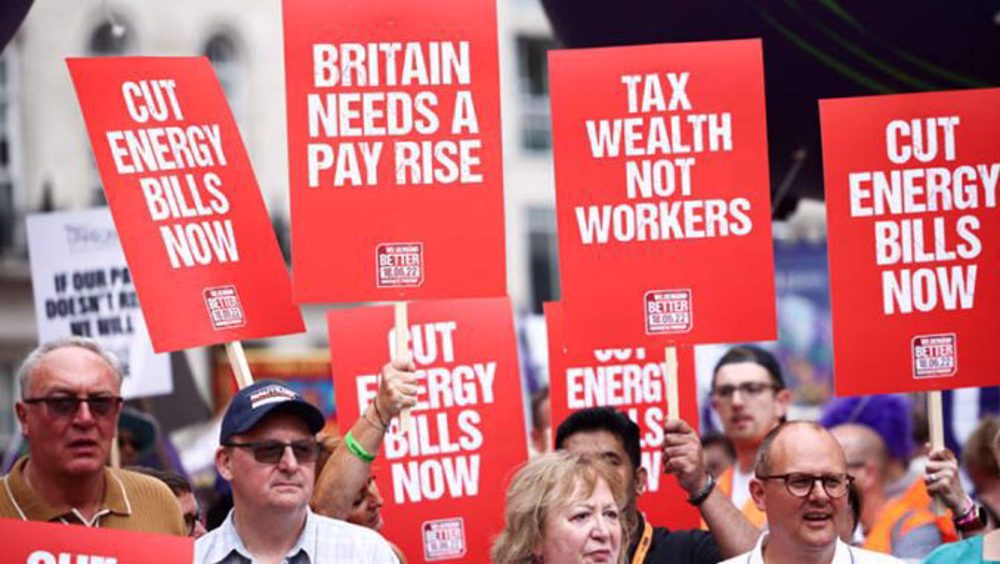
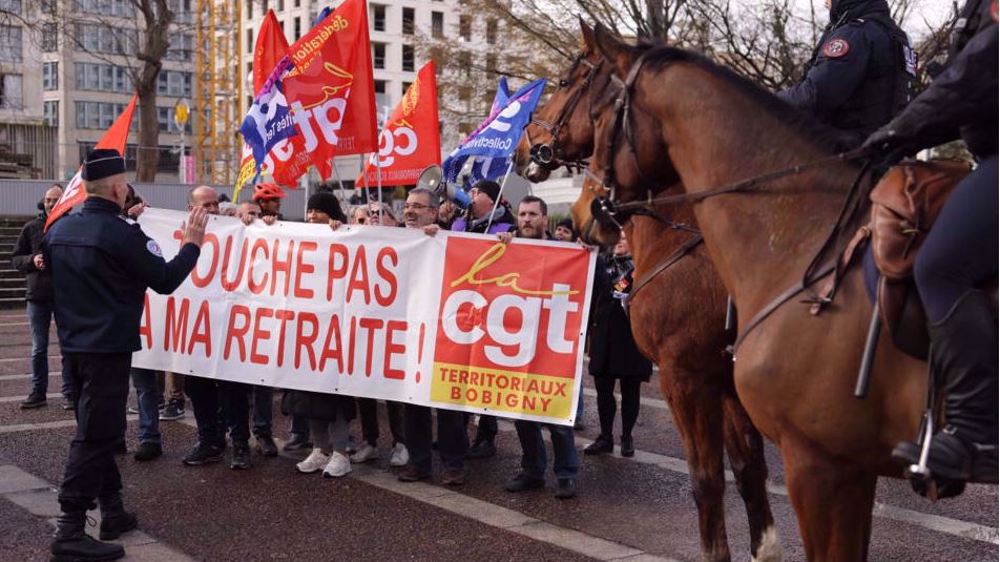
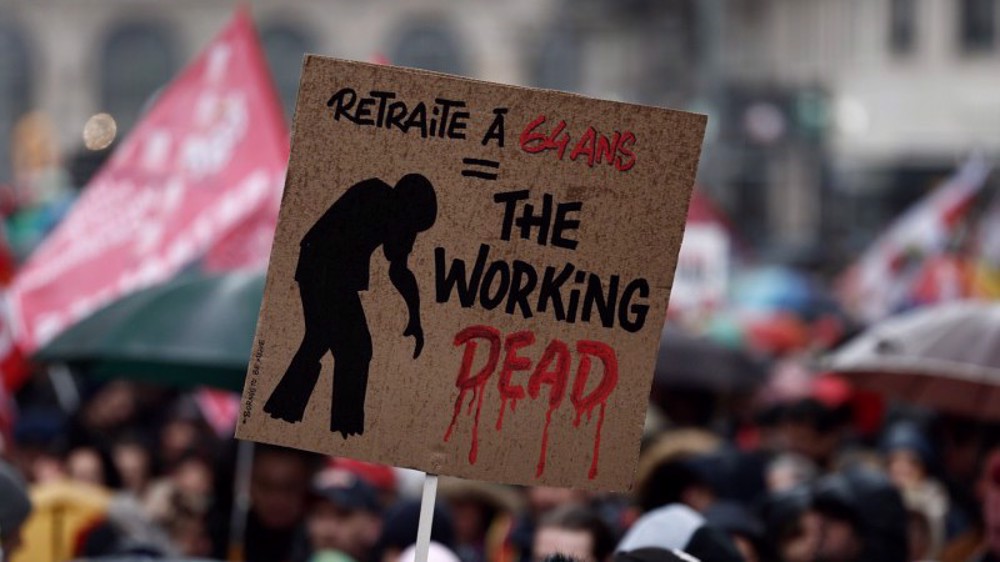
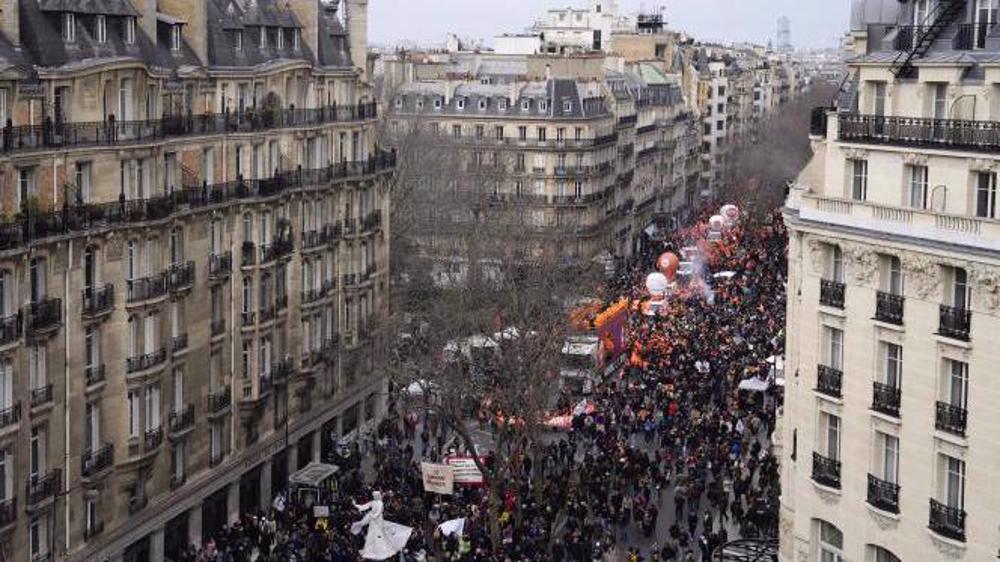
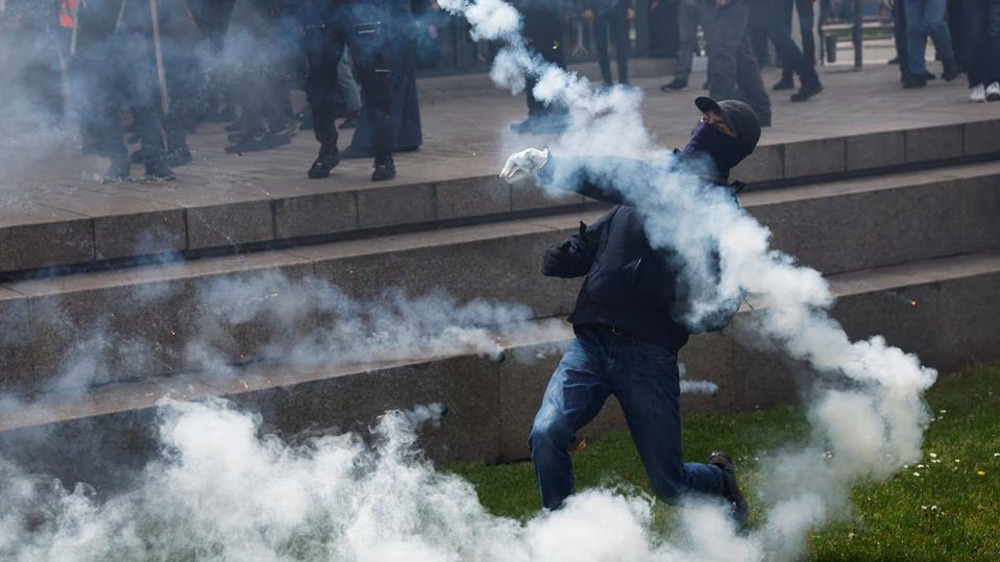


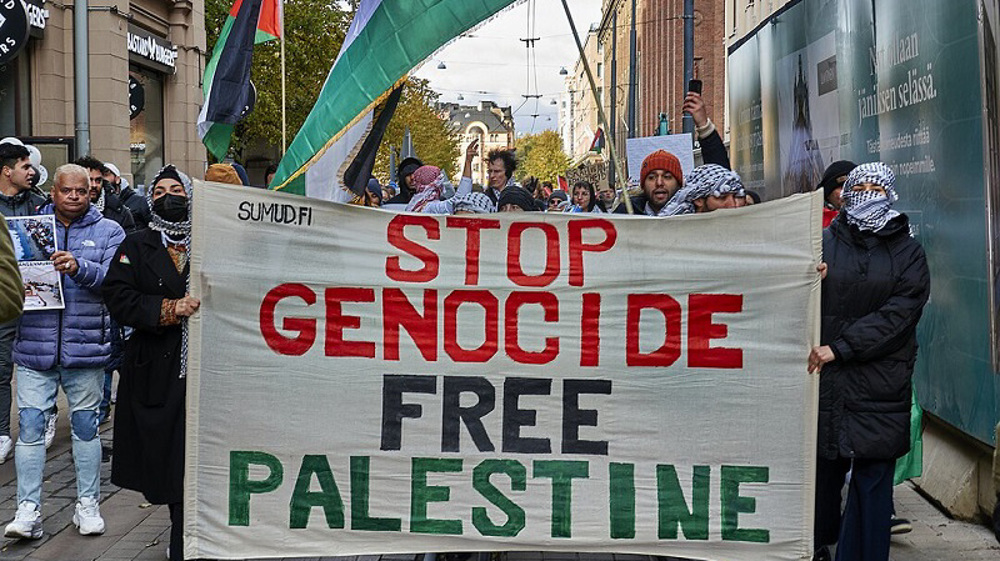



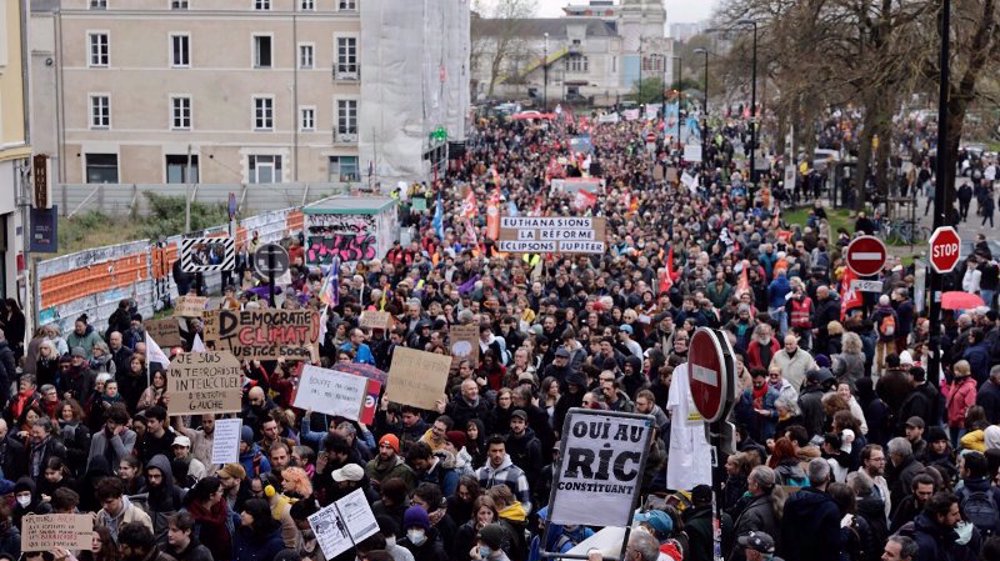
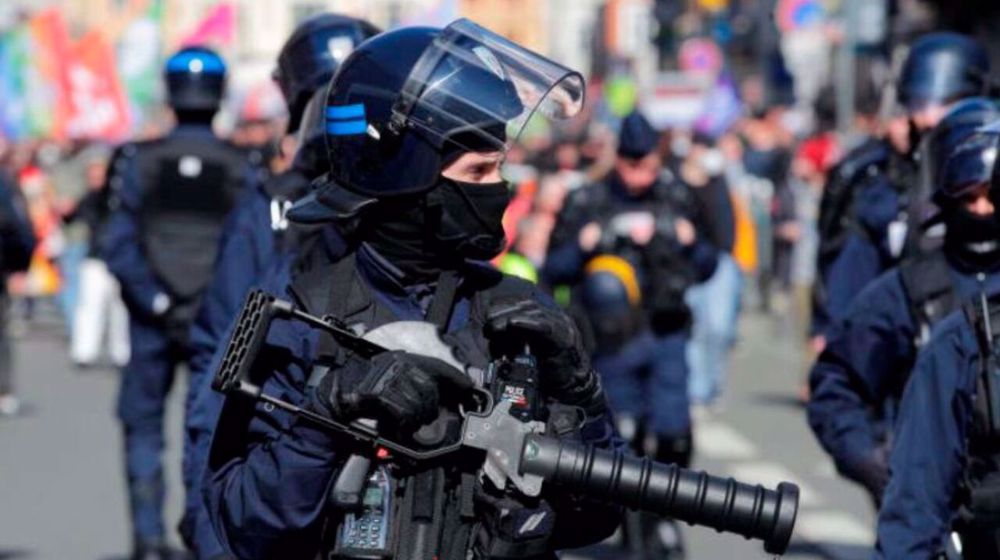
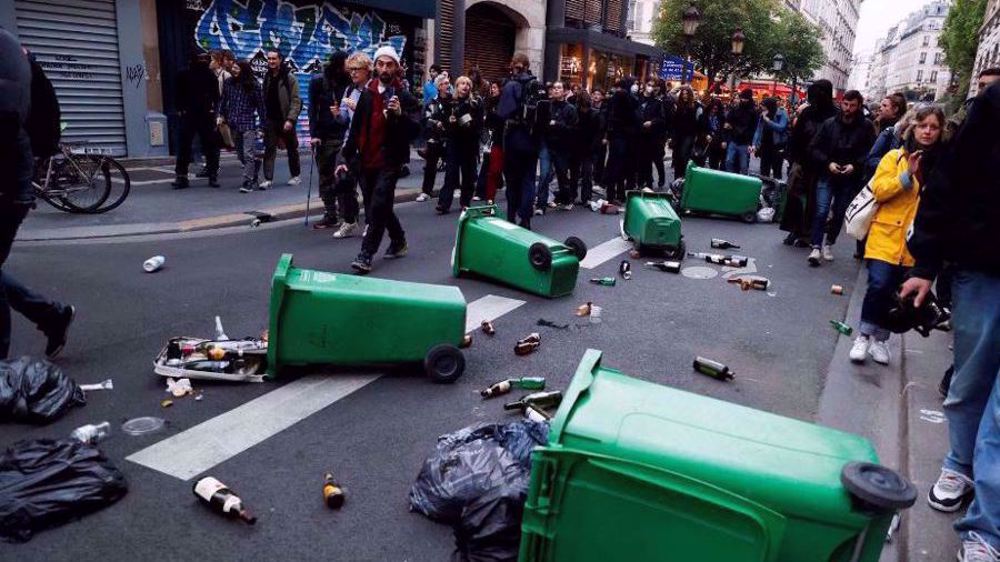
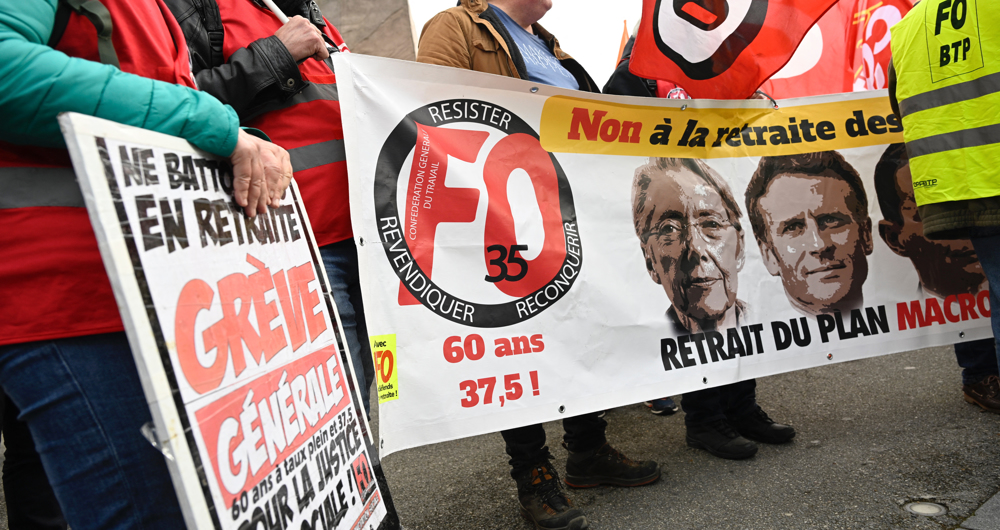
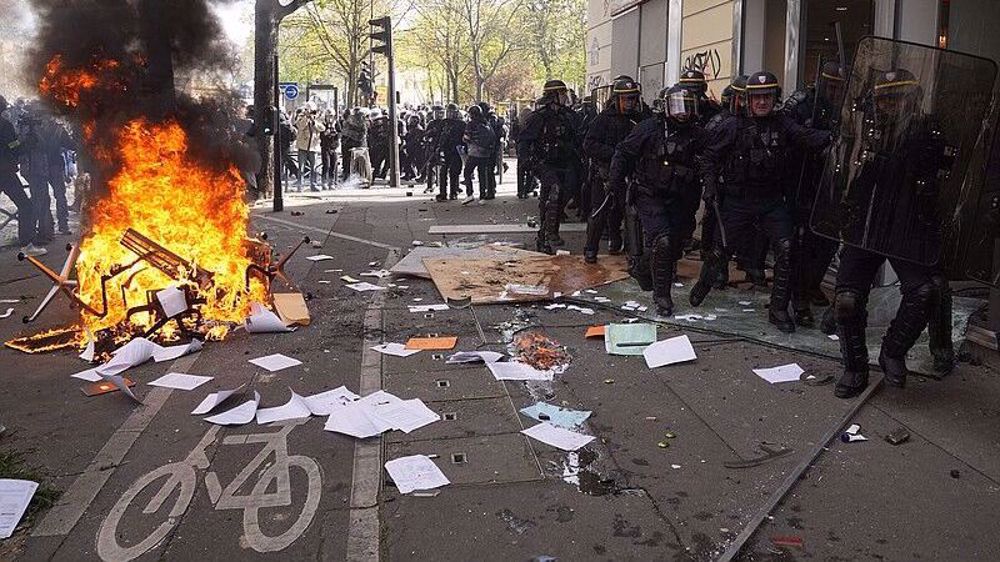
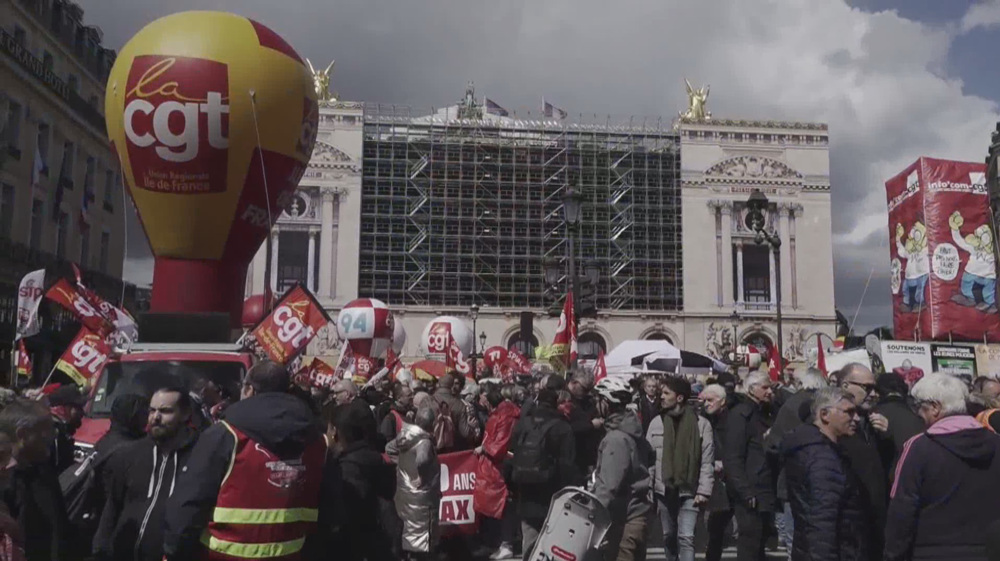
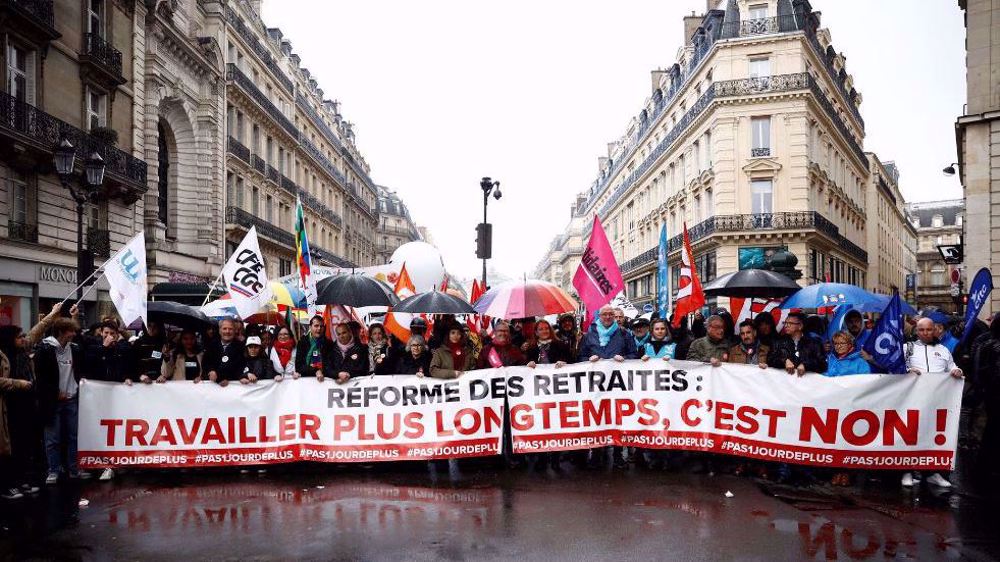
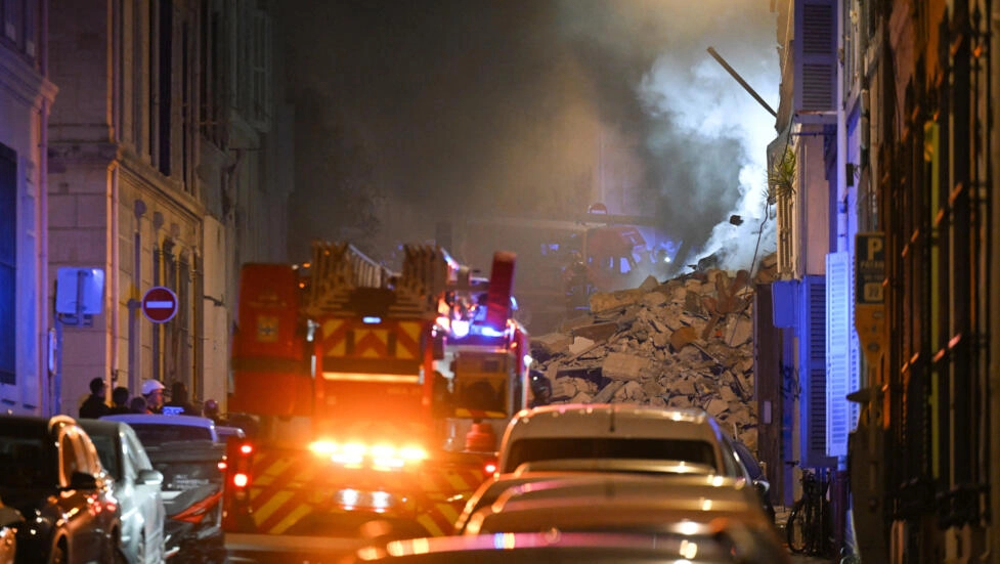
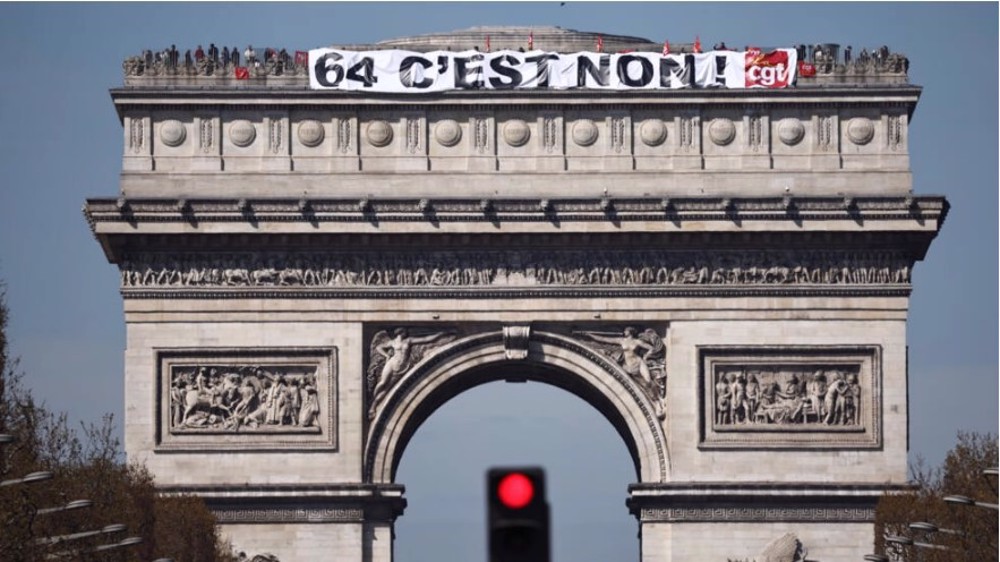
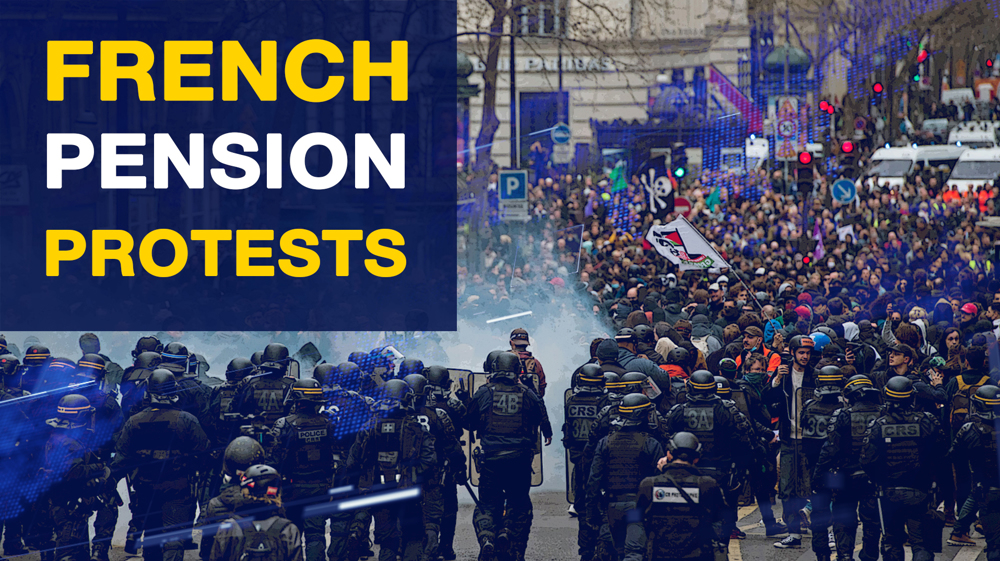

 This makes it easy to access the Press TV website
This makes it easy to access the Press TV website